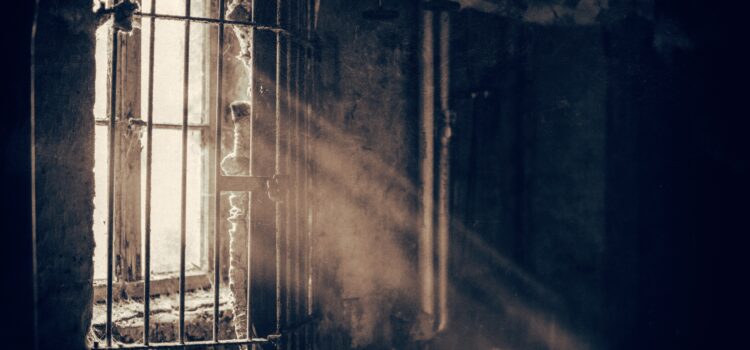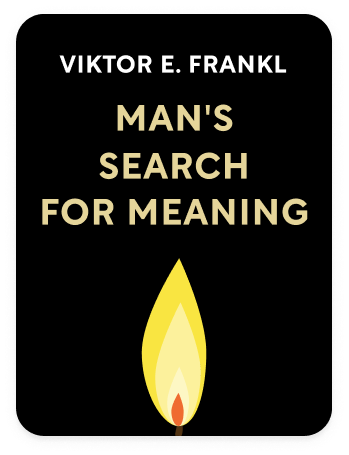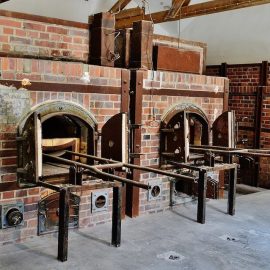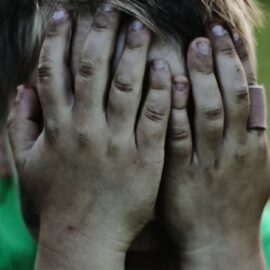

This article is an excerpt from the Shortform book guide to "Man's Search For Meaning" by Viktor E. Frankl. Shortform has the world's best summaries and analyses of books you should be reading.
Like this article? Sign up for a free trial here .
What was Viktor Frankl’s concentration camp experience like? What did he learn about psychology?
Viktor Frankl was sent to Auschwitz as well as other camps While there, he observed three stages of a person’s psychological state during his time in a concentration camp. By understanding these, Frankl believed he was able to develop a psychology that helped him survive.
Read more about Viktor Frankl, concentration camp psychology, and how Frankl developed logotherapy.
Viktor Frankl, Concentration Camps, and Psychology
Viktor Frankl’s concentration camp experience was spread across four different camps, including Auschwitz. Frankl observed that the psychological journey of a concentration camp prisoner went through 3 basic phases and 3 accompanying symptoms:
- Following their admission into the camp, the primary symptom was shock.
- When they became well entrenched in camp routine, the primary symptom was apathy.
- Following their release and liberation, the primary symptom was depersonalization.
Phase 1: Admission + Shock
Emotional or psychological shock occurs when we encounter situations that are too stressful for us to process immediately. Shock can manifest in a variety of ways, but the main category Frankl discussed is abnormal reactions.
Humans react abnormally to abnormal situations. In other words, when we encounter a stressful situation, we have reactions that often contradict the situation, like laughing at a funeral. Abnormal reactions to abnormal circumstances are actually normal and expected reactions. In fact, the more normal you are, the more abnormal your reactions to abnormal circumstances are. Viktor Frankl’s time at Auschwitz helped him see these psychological principles.
Frankl refers to four abnormal reactions: delusions of reprieve, humor, curiosity, and lack of fear.
- Delusions of reprieve: We hope for a good outcome in situations, even when there’s lots of evidence to the contrary.
- Example: Viktor Frankl’s concentration camp experience began with being transported to the camp with 1500 other people by train. When their train arrived at Auschwitz, a small group of current prisoners boarded the train. They were all shaved and in typical prison uniform–but looked healthy, ruddy complexioned, well-fed, and seemed to have good attitudes.
- These prisoners were a “specially chosen elite,” kept in good health deliberately to greet the new prisoners and prey on their tendency toward delusions of reprieve. “Everything’s going to be fine here! We’re happy and well-fed, and you will be too!”
- Example: Viktor Frankl’s concentration camp experience began with being transported to the camp with 1500 other people by train. When their train arrived at Auschwitz, a small group of current prisoners boarded the train. They were all shaved and in typical prison uniform–but looked healthy, ruddy complexioned, well-fed, and seemed to have good attitudes.
- Humor: There was obviously nothing funny about the concentration camps and their reputations, and yet prisoners could be found making jokes about the situation, like how there was at least real water in the showers for Viktor Frankl at the concentration camp.
- Curiosity: Being admitted into a concentration camp forced prisoners to confront their mortality, but instead of feeling anxiety over this, many prisoners found themselves wondering if they’d survive with a detached, almost clinical curiosity.
- Example: Frankl was in a climbing accident, and at the moment he fell, he wondered if he’d fracture his skull or suffer other injuries, but he didn’t feel fear about the outcome.
- Lack of fear: Despite the fact that many prisoners already knew the high rate of death in concentration camps, in this first phase they weren’t really afraid of death yet, because the reality that they truly might die hadn’t set in. For Viktor Frankl at Auschwitz, observing these reactions was common.
(Shortform note: Scientists think that our brains use these abnormal reactions to relieve stress, which is why they’re really normal reactions. Stress harms our bodies and our brains, so naturally they fight back.)
This was just an initial reaction. As the days went by, the shock eventually wore off and prisoners ceased their abnormal reactions. For Viktor Frankl, the concentration camp life became a grim new reality.
Phase 2: Routine + Apathy
Over time, the prisoners began to settle into a kind of routine in the camps–but the routines in this case were merciless and cruel. The prisoners had little choice but to fall into a state of apathy.
Apathy is a protective shell, a defense mechanism that allowed prisoners to reserve their emotional strength for the most important task: preserving their own lives and the lives of others. It’s something like an emotional death, where humans direct our energy towards surviving instead of feeling things.
Prisoners didn’t have the energy to support a stressful emotional inner life–survival mode reduces humans down to a “primitive level,” a regression to the most basic needs in life. Apathy allowed the prisoner to survive regular beatings, malnutrition, death of those around them, and agonizing injustice without losing their minds.
- Example: Frankl worked in a hut for typhus patients in camp, and a patient had just died. First, the other prisoners stripped the body of clothes, food, possessions. Then, a fellow prisoner came to remove the body by dragging it by its feet up two small stairs, the corpse’s head bumping with “an uncanny rattling noise.” Frankl responded to this situation by eating his lunch apathetically.
We find this image disturbing, but Frankl couldn’t afford to be disturbed by it, or he’d miss one of his few small meals of the day. His instinct to survive took priority over any complex emotional response he might have, and left him in a state of apathy.
Phase 3: Liberation + Depersonalization
The first two phases in the concentration camps claimed many lives, through executions or through injury, disease, or suicide. But some prisoners survived the camps and lived to return to life outside the barbed wire fences.
The prisoners weren’t granted a slow return to life–they were freed and immediately let back into the world–and many found it to be a world that was completely different than the one they left behind so many years ago.
- Think of scuba divers and the bends. When a diver has been in the high-pressure deep ocean, she has to swim to the surface very slowly to ensure that air bubbles from the pressure don’t escape into her bloodstream and, at worst, kill her.
- In contrast, the prisoners were released immediately from a situation full of pressure and stress.
We might assume the survivors would be overjoyed to get out of camp and grateful to return to normal life. But the first two phases had taken their toll on the prisoners’ psyches, and they confronted the last psychological symptoms. Moreover, very few prisoners received psychological cafe after their liberation, and they had to contend with the issues themselves.
First, the prisoners felt depersonalization, a psychological state where you feel disconnected from your thoughts and your body. You view yourself from the outside, or feel as if you’re dreaming and not truly present.
The prisoners had been shut off from their emotions for so long that they had difficulty feeling things once they were released, and they had specifically lost the ability to feel positive things.They would gradually have to relearn how to feel positive emotions.
Second, the liberated prisoners felt 3 negative reactions: vengeance, bitterness, and disillusionment.
- Vengeance: the prisoners had suffered immensely, and now they wanted to make others suffer, or didn’t care if others suffered.
- Frankl and another former prisoner were walking across a field when they came across a batch of fresh, green crops. Frankl wanted to walk around the young crops so they didn’t destroy them; his friend shouted, “Hasn’t enough been taken from us? My wife and child have been gassed–and you would forbid me to tread on a few stalks of oats!”
- Bitterness: People who hadn’t been in the camps claimed they didn’t know what was going on there, or that they too had suffered in their own way. The prisoners wondered why they had suffered through the camps just to be released into a world that didn’t acknowledge or care about their suffering, which led them to feel bitter.
- Disillusionment: Former prisoners often found that the world they’d been so eager to return to was nothing like what they imagined it would be.
- For example, men and women who survived the concentration camps wanted to find their loved ones again or return to their old lives. But many former prisoners were released only to discover that no one waited for them, or their homes were gone, or their towns were different from what they remembered.
So now we’ve defined the 3 psychological phases of the prisoners. The concentration camps of WWII were places of abject horror and suffering–and yet sometimes, prisoners resisted the external forces around them and found psychological relief or even joy. How did they do it? Viktor Frankl’s concentration camp experience resulted in his theory of logotherapy.

———End of Preview———
Like what you just read? Read the rest of the world's best book summary and analysis of Viktor E. Frankl's "Man's Search For Meaning" at Shortform .
Here's what you'll find in our full Man's Search For Meaning summary :
- How Viktor Frankl survived four Nazi death camps
- Frankl's life-changing advice for coping with suffering
- Why focusing on what you enjoy isn't enough to make your life meaningful






